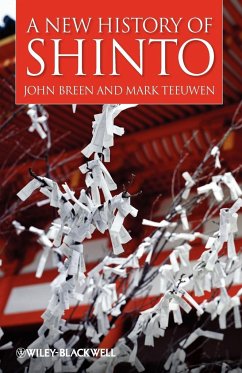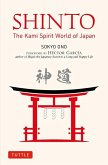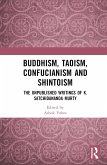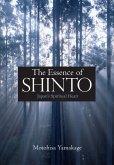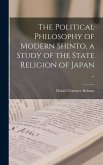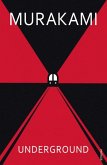"It is a measure of the book's achievement that ithas managed to introduce such scholarly notions in a way that is atonce accessible and instructive. Even those skeptical aboutits claims would have to admit the solidity of the research, andthe book renders valuable service by opening up debate aboutShinto's origins to a general readership. Its influence islikely to be long lasting." (Japan Review,2012)"Breen and Teeuwen offer a postmodern, historical exposition ofShinto. In addition to independent research, they draw on a widefield of contemporary Japanese Shinto studies . . . The book isthus not only a result of solid academic work-it is also anambitious political assessment." (Japanese Journal of ReligiousStudies, 2010)
"But for anyone interested in Shinto studies, religion andnationalism, and the contested and ever-changing nature ofreligious traditions, this is an essential read." (ReligiousStudies Review, 1 March 2011)
"Written by two scholars at the forefront of the study ofJapanese religions, this book offers much more than a 'briefhistory'. It is in fact a very bold and lucid attempt toredraw the parameters that govern our understanding of that elusivebody of thought and practice we call Shinto ... This book willsurprise and on occasion shock; it will surely be required readingfor all those interested in Japan and the Japanese."
--Richard Bowring, Professor of Japanese Studies, University ofCambridge"Fresh material presented in an entirely original format.Co-written by two of the world's leading academic authorities on Japanese religions, this book is a substantial and highly readable introduction to Shinto ... It sets a new standard for a concise introduction to Shinto [and] should be required reading for anyone interested in Japan and religion."-Brian Bocking, University College Cork
"But for anyone interested in Shinto studies, religion andnationalism, and the contested and ever-changing nature ofreligious traditions, this is an essential read." (ReligiousStudies Review, 1 March 2011)
"Written by two scholars at the forefront of the study ofJapanese religions, this book offers much more than a 'briefhistory'. It is in fact a very bold and lucid attempt toredraw the parameters that govern our understanding of that elusivebody of thought and practice we call Shinto ... This book willsurprise and on occasion shock; it will surely be required readingfor all those interested in Japan and the Japanese."
--Richard Bowring, Professor of Japanese Studies, University ofCambridge"Fresh material presented in an entirely original format.Co-written by two of the world's leading academic authorities on Japanese religions, this book is a substantial and highly readable introduction to Shinto ... It sets a new standard for a concise introduction to Shinto [and] should be required reading for anyone interested in Japan and religion."-Brian Bocking, University College Cork

